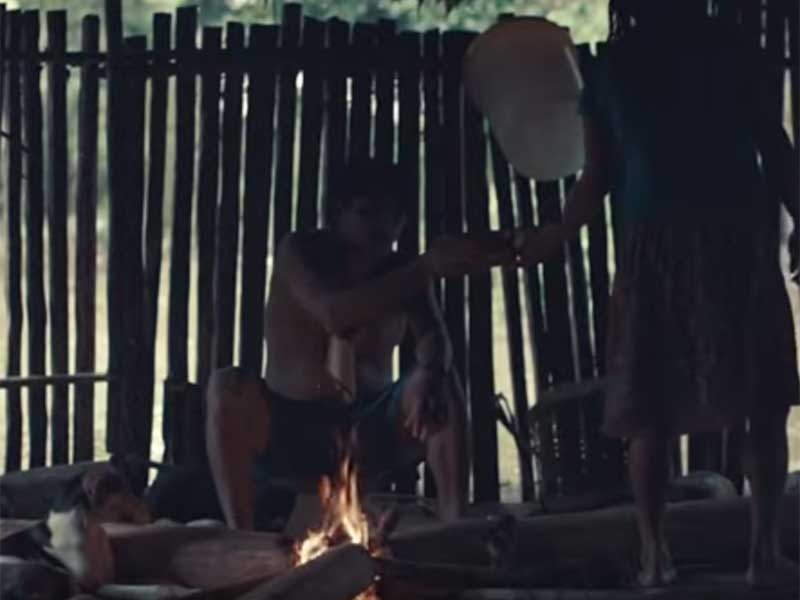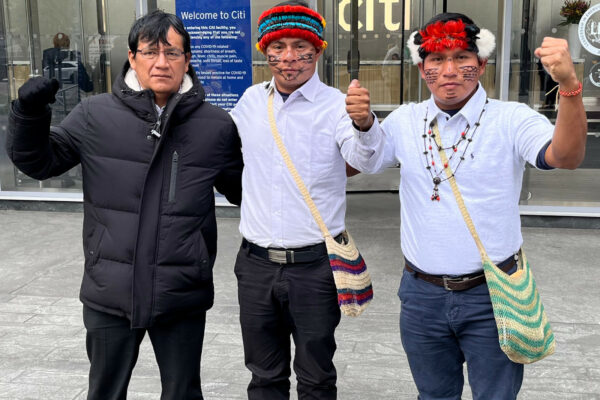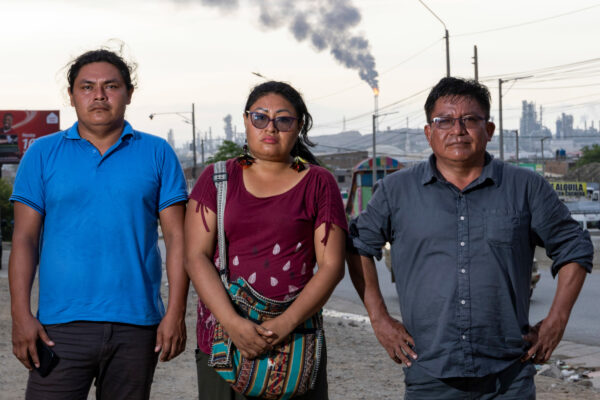The Peruvian Amazon, which encompasses some 300,000 square miles, is an extremely biodiverse landscape larger than the state of Texas. For its size, it is very sparsely inhabited – it takes up 60% of Peru’s landmass but is only home to about 5% of the country’s 30 million people. This 5% is made up primarily of indigenous people, some of them having had minimal contact with the outside world.
But the region is under threat from two vastly different but interconnected sources: resource extraction and climate change. Fusion recently traveled to the remote area to document one tribe’s ongoing effort to confront these modern day plights – an endeavor they have undertaken in a way that both honors their heritage and prioritizes future generations.
The Achuar live in a part of the Peruvian rainforest that takes a week to reach from Lima, the country’s capital. The 11,000 or so Achuar inhabiting the area derive their entire way of life and sense of place in the universe from the surrounding forest, which they believe they have been living in since the beginning of time.
But now, with major oil companies eyeing an especially prized block of oil reserves underneath their homeland, time is of the essence. As Fusion previously reported, over the past 15 years, dozens of villages in Peru have suffered through oil spills that have contaminated nearby rivers with cadmium, lead, and other toxic materials and set in motion expensive and challenging cleanup efforts. These tribes are not equipped to deal with the monumental restoration tasks on their own nor are they prepared to for the long-term consequences, which can threaten their entire way of life.
According to Andrew E. Miller, with Amazon Watch, community-based documentation of the ongoing pollution in the region led to four rivers being declared “environmental emergency zones” by Peru’s Environment Minister, though he told Fusion that “few actions were taken to actually address the crisis.”
Miller said that the Achuar have played a central role in protesting what amount to “environmental crimes” in their homeland.
For the Achuar, the combination of environmental degradation and the impacts of climate change has lead to a loss of fish in the rivers they rely on for food, a shortage of animals to hunt, and even the disappearance of papayas.
With oil prices lower than they have been in years, for the moment the Peruvian government is having trouble finding an operator to drill for oil in the region. Miller said that concerns over pollution liabilities and social conflict are also causing hesitation from international drilling companies.
“International companies are slashing their exploration budgets and are less willing to invest in marginal, risky locations like the Peruvian Amazon,” he said. “So that’s good news from our perspective, but we’d be unwise to assume that oil prices will stay forever low.”
Forever is an unfamiliar word to multinational oil companies that live and die by the market. For the Achuar, forever can be found right in their backyard. For now.
In the meantime they remain optimistic, with one tribe member telling Fusion “we feel happy and continue to fight for our people.”














